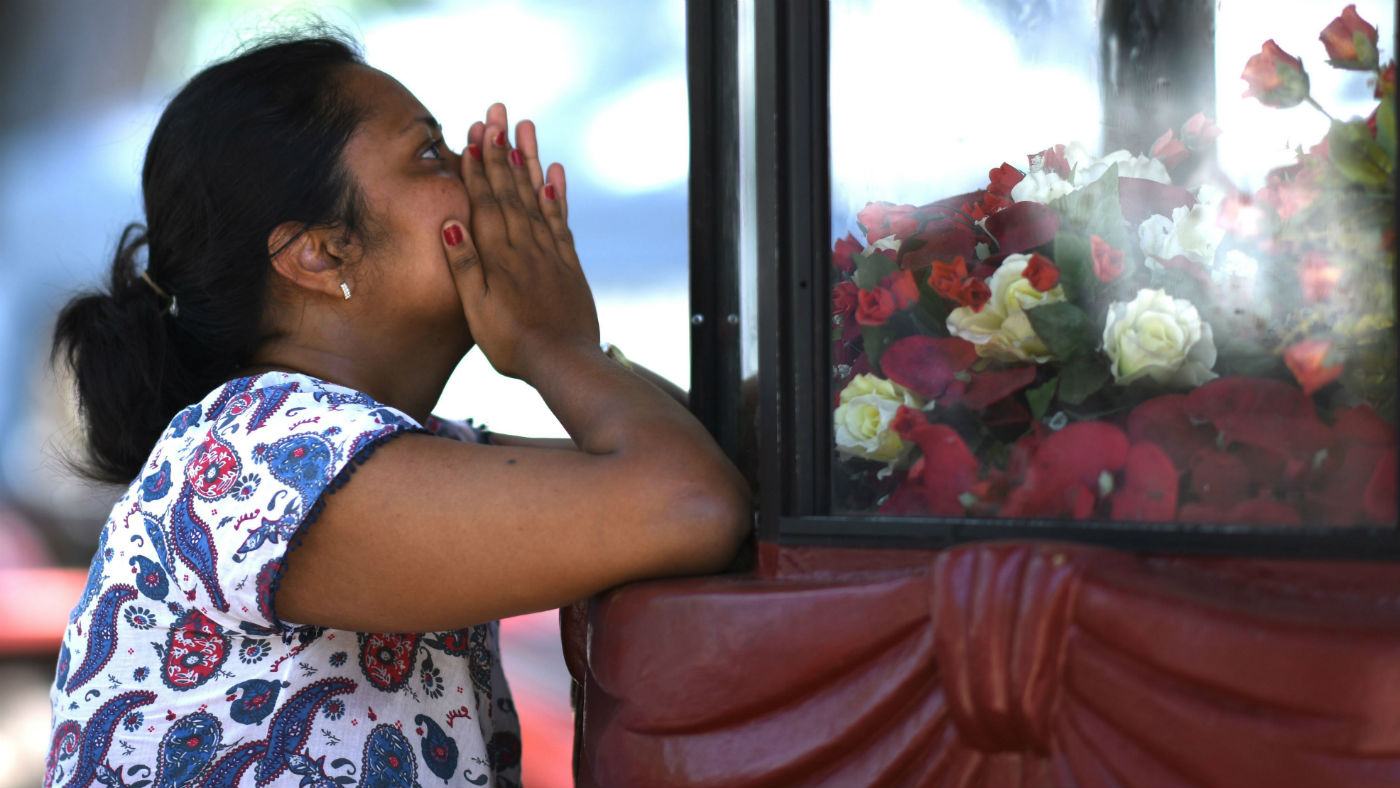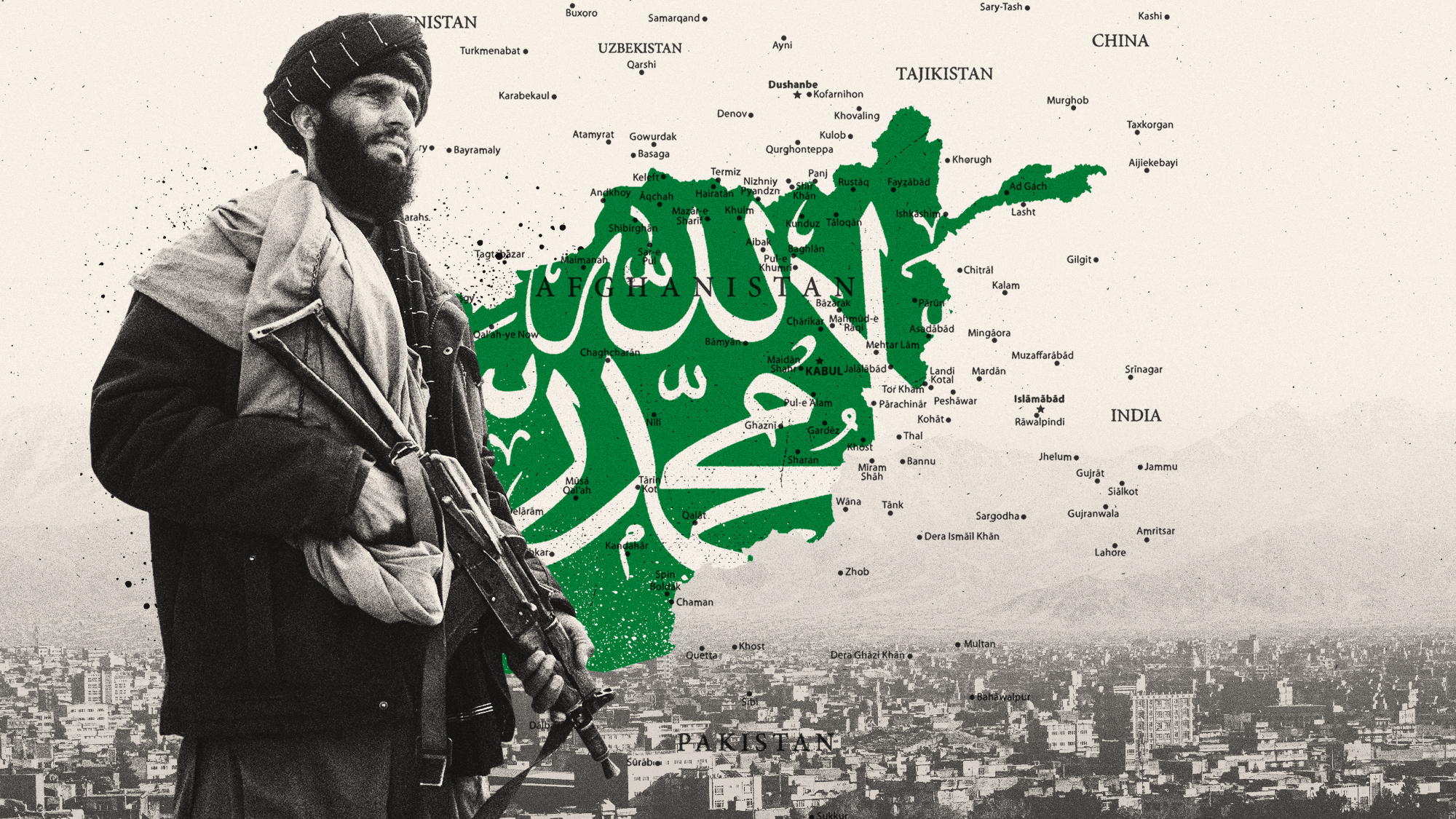Sri Lanka attacks: what we know about the bombers
Nine attackers were well-educated and wealthy, say authorities

A free daily email with the biggest news stories of the day – and the best features from TheWeek.com
You are now subscribed
Your newsletter sign-up was successful
Authorities in Sri Lanka have revealed personal information about the suicide bombers who carried out the Easter Sunday attacks that killed at least 359 people and injured hundreds more.
Defence Minister Ruwan Wijewardene told a media briefing that eight of the nine killers had been identified and that one was a woman. Most of them had been university educated and came from prosperous backgrounds.
“This group of suicide bombers, most of them are well educated and come from middle- or upper-middle class, so they are financially quite independent and their families are quite stable financially,” Wijewardene said.
The Week
Escape your echo chamber. Get the facts behind the news, plus analysis from multiple perspectives.

Sign up for The Week's Free Newsletters
From our morning news briefing to a weekly Good News Newsletter, get the best of The Week delivered directly to your inbox.
From our morning news briefing to a weekly Good News Newsletter, get the best of The Week delivered directly to your inbox.
“That is a worrying factor in this. Some of them have, I think, studied in various other countries, they hold degrees, LLMs [law degrees], they’re quite well-educated people.”
That revelation “is not as surprising as it sounds”, says the BBC’s security correspondent, Frank Gardner.
Although poverty and lack of opportunities have steered many down a path to terrorism, “there are also numerous examples of individuals abandoning a relatively comfortable lifestyle for a violent cause”, he continues.
What do we know so far about the bombers?
A free daily email with the biggest news stories of the day – and the best features from TheWeek.com
UK counterterrorism investigators believe that one of the bombers, Abdul Lathief Jameel Mohamed, attended Kingston University in southwest London for a year from 2006.
He went on to study his postgraduate degree in Australia, according to the country’s Prime Minister Scott Morrison. “I can confirm the suicide bomber had been in Australia. They departed in early 2013. That individual had been here on a student and graduate skilled visa,” Morrison told reporters this week.
Mohamed, believed to have been in his 30s, blew up a guesthouse in Colombo, killing two people, after abandoning an earlier attack on a luxury hotel in the capital when his suicide vest failed to detonate, reports The Times.
Two of the other bombers were brothers, the sons of one of Sri Lanka’s wealthiest spice traders. Imsath Ahmed Ibrahim, 33, and Ilham Ahmed Ibrahim, 31, between them blew up two hotels in Colombo, where they were members of one of the wealthiest Muslim families in the city.
Pamuditha Anjana, a neighbour of the family in the Dematagoda district of the Sri Lankan capital, told CNN that the Ibrahims were “very well connected, very rich, politically connected as well”.
The younger brother also had links with National Thowheed Jamath, a Sri Lankan Islamist group suspected of involvement in planning the attacks, says Reuters.
When police raided his mansion hours after the initial attacks, his pregnant wife, Fatima, “blew herself up, killing her three children and three officers”, says Metro.
The Sri Lankan authorities have not yet publicly identified the bombers involved in the attacks on churches in Colombo and the cities of Negombo and Batticaloa.
Is Islamic State involved?
Isis has claimed responsibility for the attacks, “although it did not provide direct evidence of its involvement”, says the BBC.
Investigators believe that Mohamed Zahran, a Tamil-speaking preacher from the east of the country who also goes by the name Zahran Hashim, “may have been the mastermind”, says Al Jazeera.
Isis released a video this week, through its Amaq propaganda agency, “showing eight men, all but one with their faces covered, standing under a black IS flag, declaring loyalty to its leader, Abu Bakr Al-Baghdadi”, the news site adds. The only person in the video with his face uncovered was Zahran.
However, the authorities had not confirmed whether Isis “provided more than symbolic support, such as by training the attackers or building the bombs”, says The New York Times.
-
 Film reviews: ‘Send Help’ and ‘Private Life’
Film reviews: ‘Send Help’ and ‘Private Life’Feature An office doormat is stranded alone with her awful boss and a frazzled therapist turns amateur murder investigator
-
 Movies to watch in February
Movies to watch in Februarythe week recommends Time travelers, multiverse hoppers and an Iraqi parable highlight this month’s offerings during the depths of winter
-
 ICE’s facial scanning is the tip of the surveillance iceberg
ICE’s facial scanning is the tip of the surveillance icebergIN THE SPOTLIGHT Federal troops are increasingly turning to high-tech tracking tools that push the boundaries of personal privacy
-
 Israel retrieves final hostage’s body from Gaza
Israel retrieves final hostage’s body from GazaSpeed Read The 24-year-old police officer was killed during the initial Hamas attack
-
 China’s Xi targets top general in growing purge
China’s Xi targets top general in growing purgeSpeed Read Zhang Youxia is being investigated over ‘grave violations’ of the law
-
 Panama and Canada are negotiating over a crucial copper mine
Panama and Canada are negotiating over a crucial copper mineIn the Spotlight Panama is set to make a final decision on the mine this summer
-
 Why Greenland’s natural resources are nearly impossible to mine
Why Greenland’s natural resources are nearly impossible to mineThe Explainer The country’s natural landscape makes the task extremely difficult
-
 Iran cuts internet as protests escalate
Iran cuts internet as protests escalateSpeed Reada Government buildings across the country have been set on fire
-
 US nabs ‘shadow’ tanker claimed by Russia
US nabs ‘shadow’ tanker claimed by RussiaSpeed Read The ship was one of two vessels seized by the US military
-
 How Bulgaria’s government fell amid mass protests
How Bulgaria’s government fell amid mass protestsThe Explainer The country’s prime minister resigned as part of the fallout
-
 Normalising relations with the Taliban in Afghanistan
Normalising relations with the Taliban in AfghanistanThe Explainer The regime is coming in from the diplomatic cold, as countries lose hope of armed opposition and seek cooperation on counterterrorism, counter-narcotics and deportation of immigrants